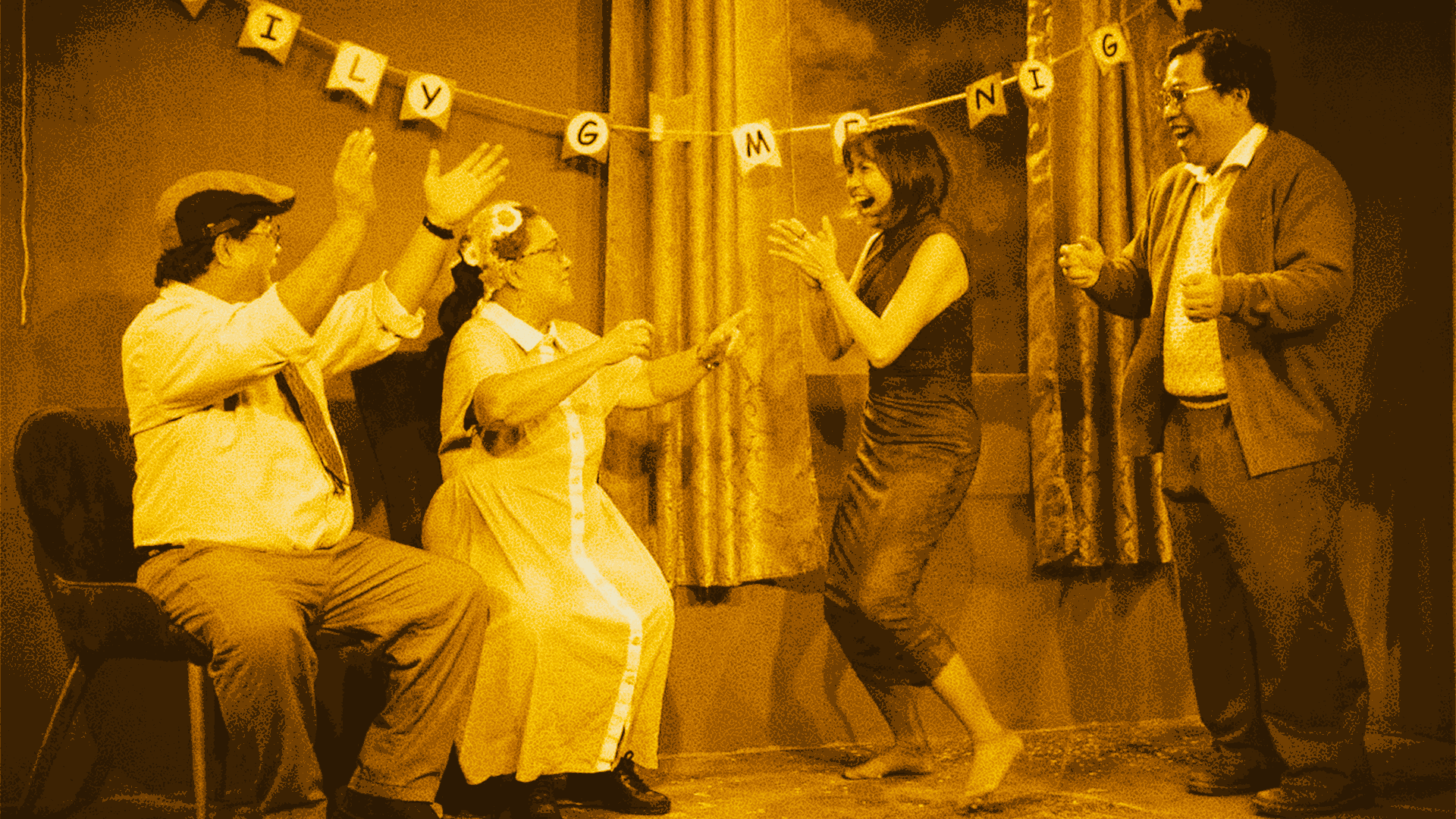‘Nagkatuwaan Sa Tahanang Ito’ REVIEW: A Wonderfully Staged Exercise in Exerting and Releasing Control - Like Any Great Family
‘Nagkatuwaan Sa Tahanang Ito’ REVIEW: A Wonderfully Staged Exercise in Exerting and Releasing Control - Like Any Great Family
Family is work. Making time to meet them, to extend your connection with them, to smile through initial annoyance before watching your frustration bleed into the room, and even allowing yourself to enjoy game nights with all the emotional baggage you’ve given and taken from each other - that’s all work. This is the foundation for Kendra’s choice to let three people be her mother, father, and brother in scheduled appearances at her place. This is the familial territory explored in Nagkatuwaan Sa Tahanang Ito, the Mad Child Productions adaptation of Sam Walsh’s This House is for Laughing. Translated and directed by Guelan Varela-Luarca, this staging is scattered with creative choices that recognize the messiness of families assigned or formed with a confident display of talent and control. It’s a wonderful closing statement for Mad Child’s first season, raising excitement for the possibilities their future stages may contain.
Before the play begins, you’re eased into the transactional nature of the setting inhabiting these characters. A group of staff members perform routine maintenance on the room before Kendra introduces, or attempts to repeatedly introduce her family. It’s almost like she’s rehearsing it to herself, like it needs to be performed. So when the scene starts and the room is revealed as Kendra’s house, she expects her parents to stick to her script. They comply dutifully, but it’s the absence of one member that almost throws off her controlled world. It’s interesting that she leaves the house to her parents to lock up after her when she leaves in frustration. She exhibits a degree of trust while emphasizing a working dynamic when she notes that the staff also come in and out.
Its committed cast displays the balance between performing to Kendra’s preference for a loving family and showing their own humanity. Soliman Cruz plays to his strengths as a man trying his best to be an endearing dad, occasionally letting out the exhaustion of a man who is unsure about his efforts. Peewee O’Hara’s Alice gets more to do, as someone capable of playing the good mother with a knowing feel for how artificial it is. Their performances enliven the dialogue by making it feel more specific and weighed by history, even as they’re performing to a client’s request.
Threatening Kendra’s fantasy of shaping a perfect family is Ben, poised to play her brother. With an unstable personal life of his own, Ben’s emotional baggage in their time together threatens their structured reality because of his need for a real family. It’s a wrinkle to Kendra’s goal that also raises interesting questions of just how willing she is to organize her own family if it means really living with their entire humanity. Joshua Cabiladas plays a man who wants to make a familial fantasy into reality even if it means needing to sift through ugly emotional truths. Ben throws just about everything to Kendra until she’s left frustrated. It’s the kind of performance that pulls you into the edge of your seat by making you wonder how long his cheerfulness will hold before his emotional weight breaks out and throws Kendra’s world off-balance.
The play’s emotional weight threatens the peace that Kendra wants for herself, and it’s clear in Thea Marabut’s performance that she is simply a woman who prefers stability. Her performance exemplifies the play’s exercise in exerting and releasing control, as a woman whose insistence on keeping a cool facade breaks until the vulnerability flows out of her, out of her control.
The play doesn’t lay out the particulars of the ways their relationship is transactional, and that’s what makes their dynamic scarier. Why do they choose to keep up their facade, if they’re all merely glued by money? But then again, aren’t many families like this? Varela-Luarca’s understanding of this question shows in the way he lets the play’s artifice bend the characters’ reality the closer they get to understanding what it takes to keep a family together. Nagkatuwaan Sa Tahanang Ito provides necessary catharsis in an increasingly individualized world, inviting audiences to understand why families forced and found can be worth sitting through hard feelings for.
SINEGANG.ph is an official media partner of Nagkatuwaan Sa Tahanang Ito.



















